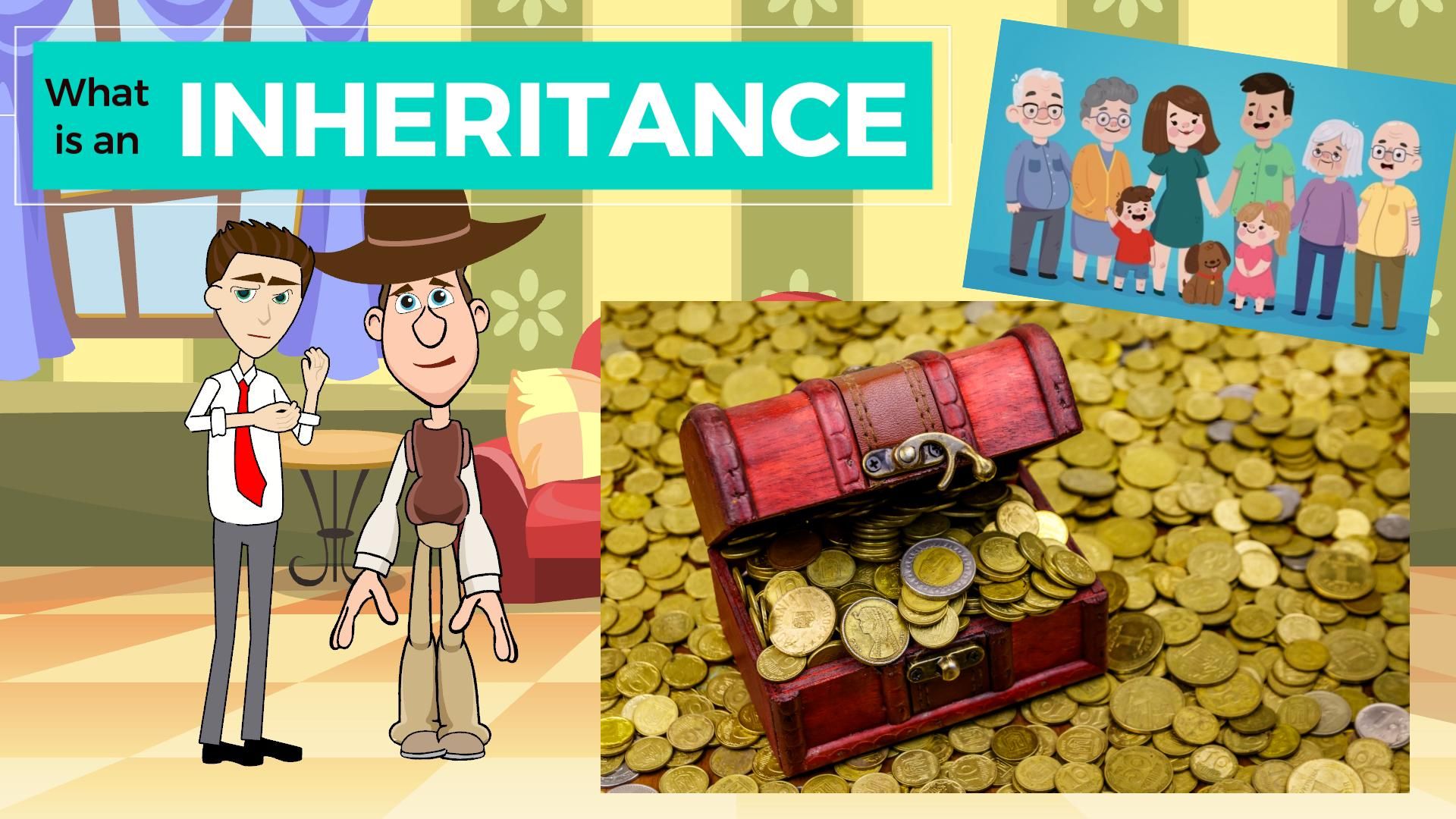Introduction to Inheritance for Kids and Teens
This video explains the concept of inheritance in a simple, concise way for kids and beginners. It could be used by kids & teens to learn about inheritance, or used as a money & personal finance resource by parents and teachers as part of a Financial Literacy course or K-12 curriculum.

Suitable for students from grade levels:
- Kindergarten
- Elementary School
- Middle School
- High School
The topics covered are:
- Meaning of inheritance: What is an inheritance
- Are all inheritances taxed – and ways to reduce or avoid inheritance tax
- How is the inheritance distributed
- What should you do if you receive an inheritance – How to use inherited money
- How can you decide who gets your inheritance
What is an inheritance?
An inheritance refers to assets that are passed down to others after someone dies.

It includes cash, investments, and real estate, as well as other valuables such as jewelry, cars, furniture, art, etc.
Usually, inheritance is given to family members and close friends.
The person whose assets are being passed down is called the decedent, and the person receiving it is called the beneficiary.
Beneficiaries may have to pay tax on the inheritance.
Are all inheritances taxed? Is there a way to reduce or avoid inheritance tax?
The amount of inheritance tax the beneficiary pays depends on the state they live in, the inheritance value, and how closely they are related to the decedent.
In the US, there is no federal inheritance tax, and the vast majority of states have no state inheritance tax either.
But in 6 states – Iowa, Kentucky, Maryland, Nebraska, New Jersey, and Pennsylvania – beneficiaries would have to pay state inheritance tax. However, spouses and children may be exempt or taxed at a lower rate.
There are a few ways to reduce or avoid paying tax on inheritance. One way is to place the assets in a trust or gift them to the beneficiaries while the owner is still alive.
Another way is to buy a life insurance policy with heirs as beneficiaries, as life insurance payouts are generally tax free.
How is the inheritance distributed?
If the decedent has a will, then the assets are distributed among the beneficiaries based on the will through a probate court.
If the decedent doesn’t have a will, then the probate court distributes the assets based on state laws using an administrator.

The assets are used to pay off any outstanding debt of the decedent before they are distributed to the beneficiaries.
What should I do if I receive an inheritance?
It’s easy to get carried away and blow a windfall on a large impulse purchase. However, that is not the ideal course of action.
While it is okay to spend a part of the inheritance on something fun, you should use the majority of the money in a responsible way.
Building an emergency fund, paying off debt and investing for retirement should be your top priorities. You can also set aside money for your children’s college education by opening a 529 account.
This way, the one-time inheritance will lead to long-lasting benefits. If you need time to decide, you can temporarily park your money in a Certificate of Deposit (CD), high yield savings account or money market account.
(Another area to evaluate is your insurance coverage. You may choose to reduce your insurance coverage as you have more money at your disposal in case of an emergency.
Or you could go the other way and increase the insurance cover to protect everything you inherited or purchased with those funds.)
How can I decide who gets my inheritance?
The best way to do this is through a will.
A will is a very important estate planning document that not only helps you decide who gets what, but also saves the beneficiaries from a lot of legal hassles and delays.
Click here to learn about a will in a simple, beginner-friendly way.
Download Transcript: Ideal for Use by Teachers in their Lesson Plan to Teach Kids & Teens
Podcast: What is an Inheritance
Fun, informative and concise episodes by a 10-year old, breaking down complex financial concepts in a way that kids and beginners can understand. Episodes cover personal finance topics like saving, investing, banking, credit cards, insurance, real estate, mortgage, retirement planning, 401k, stocks, bonds, income tax, and more, and are in the form of a conversation between a cowboy (a finance novice) and his friend, a stock broker. Making finance your friend, only at Easy Peasy Finance.
A little bit about me: I have been fascinated with the world of personal finance since I was 6! I love to read personal finance books, and keep myself updated on the latest by reading various personal finance magazines. My friends often ask me questions about finance because they find it complex and intimidating. That’s what inspired me to start my YouTube channel called Easy Peasy Finance when I was 8, and this podcast 2 years later.
Everything you need to know about Inheritance: Meaning of inheritance, are all inheritances taxed – and ways to reduce or avoid inheritance tax, how is the inheritance distributed, what should you do if you receive an inheritance – how to use inherited money, how can you decide who gets your inheritance, and more. Show notes …


